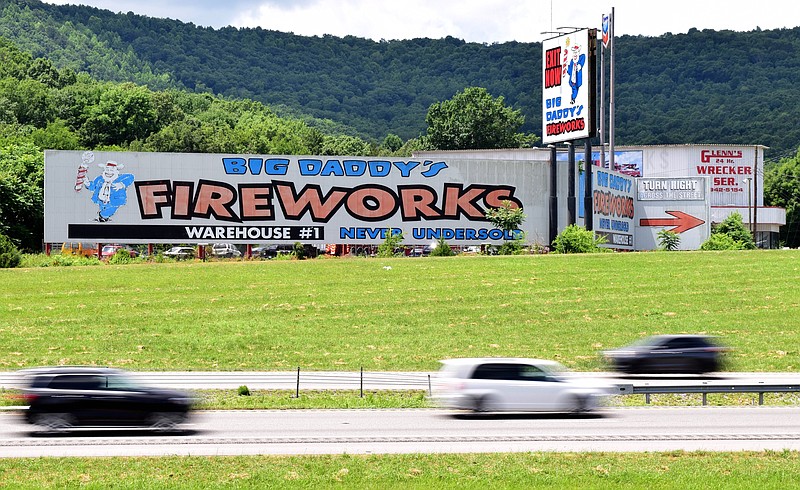As the long Fourth of July weekend lifts off, local travel and tourism experts say the summer season is shaping up to rival 2019's record numbers.
"I believe we're outpacing 2019 so far, and have been since April," said Barry White, CEO of the Chattanooga Tourism Co. "That [2019] was a benchmark year. We've just taken 2020 off our books, and we're comparing to 2019."
The drive-in market remains critical to the resilience of Chattanooga's travel and tourism industry, and the definition of drive-in is expanding, White said.
"Our market is primarily within 250 miles of Chattanooga, but we've seen a 25% increase in people driving farther than that," he said.
Road-trippers are expected to set a record this weekend, despite gas prices that are the highest they've been in seven years. An expected 43.6 million Americans will drive to their destinations, the highest on record for this holiday and 5% more than the previous record set in 2019, according to estimates from AAA.
More than 47.7 million people in the U.S. will hit the roads or take to the skies this weekend, returning overall travel volumes to levels near the records set in 2019, AAA reported. In 2020, just 34.2 million people took a trip for the Fourth of July.
When to get going
Worst time/Best timeFriday 4-5 p.m./Before noonSaturday 11 a.m. to 1 p.m./After 2 p.m.Sunday Smooth sailing all day longMonday 4-5 p.m./Before 1 p.m.
Most travel watchers have wiped 2020 off the books, for all practical purposes, said Carter Wilson, senior vice president of consulting for STR, a global hospitality data and analytics company.
"It's a matter of mathematical practicality," he said. "Comparing 60% occupancy to 4% occupancy, it's kind of untenable."
Indexing everything against 2019 presents its own challenges, since 2019 set travel records, Wilson said. But even with the residual challenges of the pandemic, revenue per hotel room is about 90% of 2019 levels across the U.S., he said.
"It's mostly leisure demand," he said. "But even in some of those big markets like New York, that really need those groups and corporate travel, there's a lot of leisure coming in."
Drive-in, leisure-oriented markets such as Chattanooga will do "gangbusters" business over the next few months, Wilson added. "For places that typically lean leisure, it's going to be a banner summer," he said.
Autumn could bring a substantial cooling off, however, as kids return to school and the business travel market comes back at a slower pace, he said.
"As we get into October and November, which are very heavy group-event months, there will be some vulnerability," Wilson said. "Outside of the summer, you're probably still going to see some softness."
Mitch Patel, CEO and founder of Vision Hospitality, said the recovery of the leisure travel market has been near 2019 numbers since the spring break season in March.
"We're obviously coming through one of the worst crises our industry has ever faced," said Patel, whose company laid off 1,100 of its 1,500 employees in the early days of the pandemic. "Going into the first week of March and then carrying through June and now getting into July, we are really optimistic and excited about the pent-up demand for travel."
Vision operates 42 hotels in eight states, with 16 of those in Chattanooga. While they aren't quite at 2019 levels, they are close, he said.
"Weekends we are doing phenomenal, and better probably than '19, but on weekdays that's not the case," he said. "As things start normalizing, the fall is going to be interesting."
Even with slow business travel and hiring challenges, Patel predicts the industry will bounce back faster than experts speculated in the worst days of the pandemic, when recovery was said to be three or even four years away.
"At the darkest hours, the experts were predicting the industry would not come back until 2024 or 2025, even," he said. "I think we're going to see recovery sooner than that."
Contact Mary Fortune at mfortune@timesfreepress.com. Follow her on Twitter at @maryfortune.
